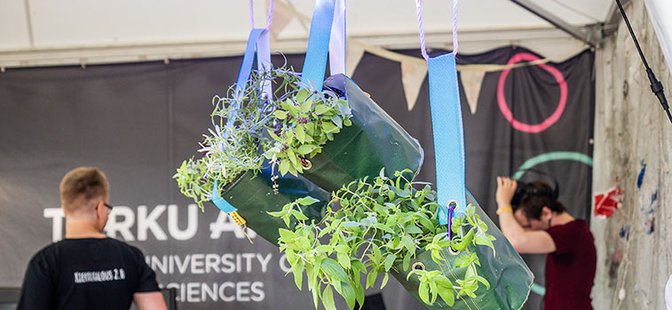
Circular Business Models
The research group advances circular business together with companies and develops the teaching of circular economy in national and international networks. At the forefront in the future is to find new solutions for moving from owning products to producing services and a sharing economy.
The expertise of the research group springs up from the synthesis of e.g. business development, sustainable development, environmental technology, service design, communications and pedagogic competence.
As part of the Circular economy lab project-learning environment, the research group carries out experiments by companies and students and joint development projects, to which appropriate multidisciplinary student teams, experts and methods are tailored. The experiments can include e.g. innovation events, clarifications or long-term projects and theses. In the research group, the circular economy is seen as a version 2.0, which takes into account not only the circulation of materials but also the perspectives of global justice and equality.
Our cooperation partners include dozens of companies from different industries that are developing circular business as well as various research institutes and development organizations that are involved in our ecosystem work.
Change brings opportunity
The sufficiency of natural resources and the on-going climate change are central challenges for future societies and businesses. Even so, recyclable, secondary raw materials worth 5.25 billion Euros are wasted in Europe every year. If these raw materials were utilized, carbon dioxide emissions would decrease by 148 million tonnes per year. If the recycling percentage was increased to 70, altogether 500,000 new jobs would be created in the EU. A better management and more effective use of our resources would reduce the dependence on import, and improve the accessibility of strategic raw materials. The aim of the Europe 2020 strategy is to change the consumer society to a recycling society. Resource consciousness has been highlighted as one of the central themes in the new strategy of the Regional Council of Southwest Finland.
Circular economy does not refer to improving environmental issues only. Circular economy can also be developed through social and economic perspectives. This way we approach the field of corporate responsibility, which also includes plenty of opportunities for companies and other organizations.